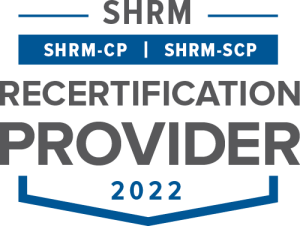Description
RECORDED TRAINING COURSE


Remote working is slated to be the future of our global workforce. You might be more familiar with its old name: “Telecommuting”. Whatever you call it, the flexibility to work outside an office is the logical next step in a world with smartphones and wi-fi.
2019 has been a big year in remote working, with about 66% of companies in the US employing remote workers. Working outside the office is no longer just for the self-employed or contract employees.
Around the world, 70% of professionals in traditional office jobs work remotely at least once a week. Technology is advancing and, with that, there’s a trend towards an increasingly mobile business model. Both employees and employers benefit from remote working.
SESSION HIGHLIGHTS:
What other compliance risk does telecommuting bring for Employers:
- Employer’s resistance to telecommuting options
- Overtime Violations
- Off the Clock Work
- State Taxes
- Workplace & Remote Posters
- Employee Handbook & Stand-Alone Policies
- Evaluations & Performance
- Disciplinary Actions
- Discrimination Allegations
- Department of Labor (DOL)/Equal Employment Opportunity Commission (EEOC)
- How will Foreign employees change Employers business status with remote workers?
- Are Remote Certifications required in some states?
- What privacy & data security concerns are impacted when working remotely and telecommuting?
- How can Employers mitigate workers compensation requirements
- Compliance Violations
Why You Should Attend:
With telecommuting arrangements, employers must monitor carefully the work hours of employees who are not exempt from federal Fair Labor Standards Act (FLSA) overtime requirements in order to avoid a violation of unpaid overtime. With employees in compressed workweek schedules, employers must adjust the defined workweek so no employee overtime is incurred; they must make sure that their timekeeping procedures incorporate any state daily overtime requirement and maximum hour limitation.
Who Should Attend:
- All Employers
- Business Owners
- Company Leadership
- Compliance professionals
- Payroll Administrators
- HR Professionals
Note: You will get access to the Recording link and E-Transcript; in your account and at your registered email address.


 Margie
Margie

